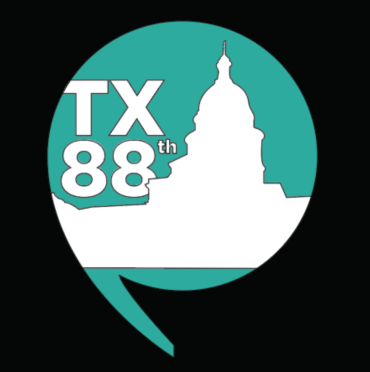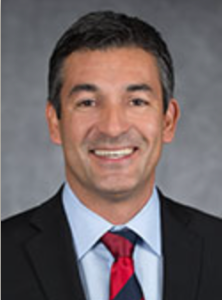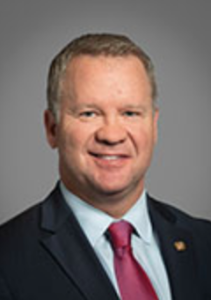The 88th Texas Legislative Session begins early next year, stretching from Jan. 10 through May 29. Because the Texas Legislature meets every other year, representatives must scramble to discuss state budget issues, push through legislation and amend existing law.

(Alexis Allison | Fort Worth Report)
The Fort Worth Report analyzed the bills filed so far by Tarrant County lawmakers. Below are the bills that have been made public on the Legislature’s bill database as of Dec. 21. Legislators are expected to file more bills in the next several weeks and during the session.
Here’s what you need to know ahead of the session’s kickoff next month:
Meet your Tarrant County representatives
There are 12 Texas House of Representative members and four Senate members who represent parts of Tarrant County. Here’s what bills they have proposed so far, and what each representative is focusing on for the upcoming session.
To find out who represents you, visit this website maintained by the Texas Legislature.
Texas House of Representatives
Of the 12 House members, nine have proposed bills for the 2023 session so far. Below are the bills that each member has proposed.

Rep. Ramon Romero Jr., District 90
District 90: Rep. Ramon Romero Jr., D-Fort Worth, incumbent
Rep. Romero has proposed one bill, according to the current Legislature database. This bill relates to the regulation of migrant labor housing facilities.
Romero’s office did not respond to a request for comment before publication time.

Rep. Stephanie Klick, District 91
District 91: Rep. Stephanie Klick, R-Fort Worth, incumbent
Rep. Klick has proposed eight bills and is part of one joint resolution, according to the current Legislature database. Some of those bills relate to public access to hospital investigation information; student loan repayment assistance for nurses employed by a long-term care facility; how state agencies provide notice of proposed rules; the licensing and regulation of genetic counselors; and a requirement to report the number of students transported to mental health emergency detention.
Her joint resolution proposes a constitutional amendment to authorize the legislature to take action at any time during the session on a bill to extend the existence of an agency or commission.
Klick’s office did not respond to a request for comment before publication time.

Rep. Salman Bhojani, District 92
District 92: Rep. Salman Bhojani, D-Bedford, freshman representative
Rep. Bhojani has not yet proposed legislation for the upcoming session, according to the current Legislature database.
In a statement, Bhojani said Texans deserve access to high quality health care, world-class schools and an economy that works for everyone.
“We promised to fight to fully fund our public schools and finally give our teachers a raise,” Bhojani said. “We promised to fight for good-paying jobs for hard-working Texans and workplaces free from discrimination and harassment. We promised to fight for affordable healthcare for everyone. We plan to make good on those promises.”

Rep. Nate Schatzlin, District 93
District 93: Rep. Nate Schatzline, R-Haslet, freshman representative
Rep. Schatzline has proposed one bill and one joint resolution, according to the current Legislature database. The bill relates to limitations on increases of appraised values in residence homesteads.
His joint resolution proposes a constitutional amendment to authorize the legislature to establish a lower limit on the maximum appraised value of residence homesteads for ad valorem tax purposes and to establish a limit on the value of single-family residences other than residence homesteads for those purposes.
Schatzline’s office did not respond to a request for comment before publication time.

Rep. Tony Tinderholt, District 94
District 94: Rep. Tony Tinderholt, R-Arlington, incumbent
Rep. Tinderholt has not yet proposed any bills for the upcoming session, according to the current Legislature database. Tinderholt is running for House Speaker against Rep. Dade Phelan for the 2023 legislative session.
Tinderholt’s office did not respond to a request for comment before publication time.

Rep. Nicole Collier, District 95
District 95: Rep. Nicole Collier, D-Fort Worth, incumbent
Rep. Collier has proposed 26 bills and two joint resolutions so far, according to the current Legislature database. Some of these bills relate to marijuana prosecution; disclosure of criminal history; expunction of all records related to arrests for decriminalized misdemeanor offenses; concrete batch plant regulations; and crime victims’ costs for housing relocation.
One of her joint resolutions proposes a constitutional amendment authorizing the legislature to provide that the officials responsible for appraising property for ad valorem taxation in a county may exclude from consideration the value of new or substantially remodeled residential property when determining the market value of an older residence homestead located in or near a tax increment financing reinvestment zone. The other constitutional amendment gives the legislature the power to enact laws providing for a district court to reduce or modify a sentence imposing a term of imprisonment for a person who has served not less than 10 years of the term.
Collier’s office did not respond to a request for comment before publication time.

Rep. David Cook, District 96
District 96: Rep. David Cook, R-Mansfield, incumbent
Rep. Cook has proposed seven bills in the upcoming session so far, according to the current Legislature database. Some of these bills relate to immunity for contractors who participate in child abuse or neglect investigations; specialty license plates for recipients of the Commendation Medal; law enforcement agencies entering protective order information into state databases; and court clerks delivering notice of a change in personal information of a person protected by a protective order.
In a statement, Cook said his priorities include ensuring Texas remains open for business and a great place to raise a family. He also plans to address teacher shortages, school safety and border security during the session, he said.
“Our state will have an unprecedented $27 billion budget surplus going into this session,” Cook said in a statement. “I remain committed to ensuring these taxpayer dollars are spent in a fiscally-conservative manner, such as lowering property taxes, supporting small businesses, and investing in infrastructure. I will continue to defend our constitutional liberties, such as our Second Amendment rights and our pro-life victories made last session.”

Rep. Craig Goldman, District 97
District 97: Rep. Craig Goldman, R-Fort Worth, incumbent
Rep. Goldman has proposed seven bills and one joint resolution in the upcoming session so far, according to the current legislature database. Some of these bills relate to repealing the franchise tax; increasing the punishment for those convicted of illegal voting to a second degree felony; the possession and consumption of wine on premises of a mixed beverage permittee; and the issuance of temporary tags and license plates by motor vehicle dealers.
His joint resolution proposes a constitutional amendment establishing a limitation on the total amount of ad valorem taxes that certain political subdivisions may impose on the residence homesteads of persons who are disabled or elderly and their surviving spouses.
Goldman’s office did not respond to a request for comment before publication time.

Rep. Giovanni Capriglione, District 98
District 98: Rep. Giovanni Capriglione, R-Southlake incumbent
Rep. Capriglione has proposed seven bills and one joint resolution in the upcoming session so far, according to the current legislature database. Some of those bills relate to limitations on increasing appraised value of ad valorem tax of residence homesteads; the development of state information technology credentials offered by public junior colleges; an exemption from the severance tax for gas; and creating a criminal offense for unlawful disclosure of addresses or telephone numbers.
His joint resolution proposes a constitutional amendment to authorize the legislature to establish a lower limit on the maximum appraised value of residence homesteads for ad valorem tax purposes and to establish a limit on the value of single-family residences other than residence homesteads for those purposes.
Capriglione’s office did not respond to a request for comment before publication time.

Rep. Charlie Geren, District 99
District 99: Rep. Charlie Geren, R-Fort Worth, incumbent
Rep. Geren has proposed one bill and one joint resolution in the upcoming session so far, according to the current legislature database. The bill relates to the limitation on the total amount of ad valorem taxes.
His joint resolution proposes a constitutional amendment establishing a limitation on the total amount of ad valorem taxes that certain political subdivisions may impose on the residence homesteads of persons who are disabled or elderly and their surviving spouses.
Geren’s office did not respond to a request for comment before publication time.

Rep. Venton C. Jones, District 100
District 100: Rep. Venton C. Jones, D-Dallas, freshman legislator
Rep. Jones has not yet proposed legislation for the upcoming session, according to the current legislature database. His office did not respond to a request for comment before publication time.

Rep. Chris Turner, District 101
District 101: Rep. Chris Turner, D-Grand Prairie, incumbent
Rep. Turner, who has served as the House’s Democratic caucus chair since 2017, has proposed six bills according to the current legislature database. Some of those bills relate to eligibility for unemployment benefits; prohibiting weapons in certain facilities or residences; and criminal history record information reviews of persons providing care to individuals with intellectual disabilities.
Turner will not run to lead the minority party caucus in 2023.
In a statement, Turner said he plans to focus on increasing funding for public schools and aid for retired teachers. His other priorities include expanding healthcare access and protecting vulnerable Texans, such as those in group homes or with intellectual disabilities.
“As Chair of the Business and Industry Committee, I will file legislation aimed to curtail retail theft, ensure our first responders are receiving the workers’ compensation benefits they deserve, and balance the power between homeowners and property owners’ associations,” Turner said.
Texas Senate
There are four senators who represent Tarrant County. One has proposed legislation so far ahead of the session, according to the current legislative database.
Source: Texas House Legislative general reports filed Senate bills

Sen. Kelly Hancock, Texas Senate District 9
Texas Senate District 9: Sen. Kelly Hancock, R-North Richland Hills, incumbent
Sen. Hancock has not yet proposed legislation for the upcoming session, according to the current Legislature database.
In a statement, Hancock said he plans to work on a variety of legislation relating to education and property taxes.
“The constituents we’re hearing from are concerned about issues like parents’ rights in education, protecting our kids from fentanyl and other deadly drugs, bringing the cost of living down — property taxes included — and keeping Texas the best place to work or start a business,” Hancock said.

Sen. Phil King, Texas Senate District 10
Texas Senate District 10: Phil King, R-Burleson, freshman senator, former House representative
Sen. King, who was elected to represent District 10 after a protracted legal battle over redistricting, has proposed two bills for the upcoming session so far, according to the current legislature database. Those bills relate to a law enforcement agency accreditation grant program; and the repeal of additional ad valorem taxes imposed as the result of a sale.
King’s office did not respond to a request for comment before publication time.

Sen. Tan Parker, Texas Senate District 12
Texas Senate District 12: Sen. Tan Parker, R-Flower Mound, freshman senator, former House representative
Sen. Parker has not yet proposed any bills for the upcoming session so far, according to the current legislature database.
A spokesperson from Parker’s office said he is focusing on property taxes, dispatchable electric power and foster care and adoption. The legislature must ensure that property taxes remain reasonable and affordable for all Texans, the spokesperson said.
“He understands that high property taxes are a burden for families and businesses, and will support legislation that provides robust property tax relief to Texans,” the spokesperson said. “This may include measures to increase transparency in the property tax system, increase the homestead exemption, provide direct relief for homeowners, and or reform the property appraisal process.”

Sen. Brian Birdwell, Texas Senate District 22
Texas Senate District 22: Sen. Brian Birdwell, R-Granbury, incumbent
Sen. Birdwell has not yet proposed any bills for the upcoming session, according to the current Legislature database. His office did not respond to a request for comment before publication time.
How many members are in the House and Senate?
There are 150 members in the Texas House of Representatives, including 86 Republicans and 64 Democrats for the 2023 session, according to the Chief Clerk’s Office for Texas House of Representatives.
Twelve of those members represent areas within Tarrant County. On the first day of the session, the House will elect one of their own to become House speaker, who must keep order during chamber proceedings and appoint members to powerful committees.
The speaker for the 2021 session was Rep. Dade Phelan, R-Beaumont. Earlier this month, Phelan was backed by the Texas House Republican Caucus over Rep. Tony Tinderholt, R-Arlington, by a 78-6 vote at the Texas Capitol, according to the Texas Tribune. The vote signals that Phelan has strong support among Republicans, though the official vote for speaker will take place on the first day of the session.
On the other side of the chamber is the Texas Senate, which fields 31 members – 19 Republicans and 12 Democrats for the 2023 session, according to the Secretary of the Texas Senate.
The lieutenant governor, Dan Patrick, is the presiding officer over the Texas Senate and is selected by voters rather than Senate members. By law, Patrick cannot vote on legislation unless there is a tie or when the Senate convenes as a whole. He was most recently re-elected in November to serve a third term.
What is a committee?
A committee is a group of representatives who consider proposed bills and oversee Texas government agencies, activities and programs within their jurisdiction.
Committees are responsible for holding hearings, inviting witnesses and experts to speak on proposed bills and completing necessary revisions, if needed. Once committees review bills, it is sent back to the entire chamber for review.
The Texas House of Representatives has 34 standing, or permanent committees, and the Texas Senate has 15 standing committees, according to Ballotpedia. The number of people on each committee varies.
How does a bill become law in Texas?
Members of both the Senate and the House of Representatives can propose bills. One or more representatives can propose or sponsor bills.
Once a bill is filed, it is assigned to a committee by the majority party in the chamber. Republicans hold the majority in both chambers. Committees will hold hearings, witnesses and experts will come and speak on the proposed bill, and revisions will be made, if needed.
Once completed, the committee will send the bill to the House or Senate floor and be presented to the entire chamber. Bills proposed and revised by House committees will go to the House floor and bills proposed and revised by Senate committees will go to the Senate floor.
After reaching an agreement, the bill will be sent to the other chamber for review. Once the other chamber receives the bill, they will make amendments and revisions if needed. The House and the Senate must reach an agreement on a bill before it can become a law.
The House and the Senate will sign the bill, if it gets through negotiations, and it is sent to the governor to sign into state law at the end of the session.
Only Gov. Greg Abbott can sign bills into laws. The governor has power to sign and veto bills.
